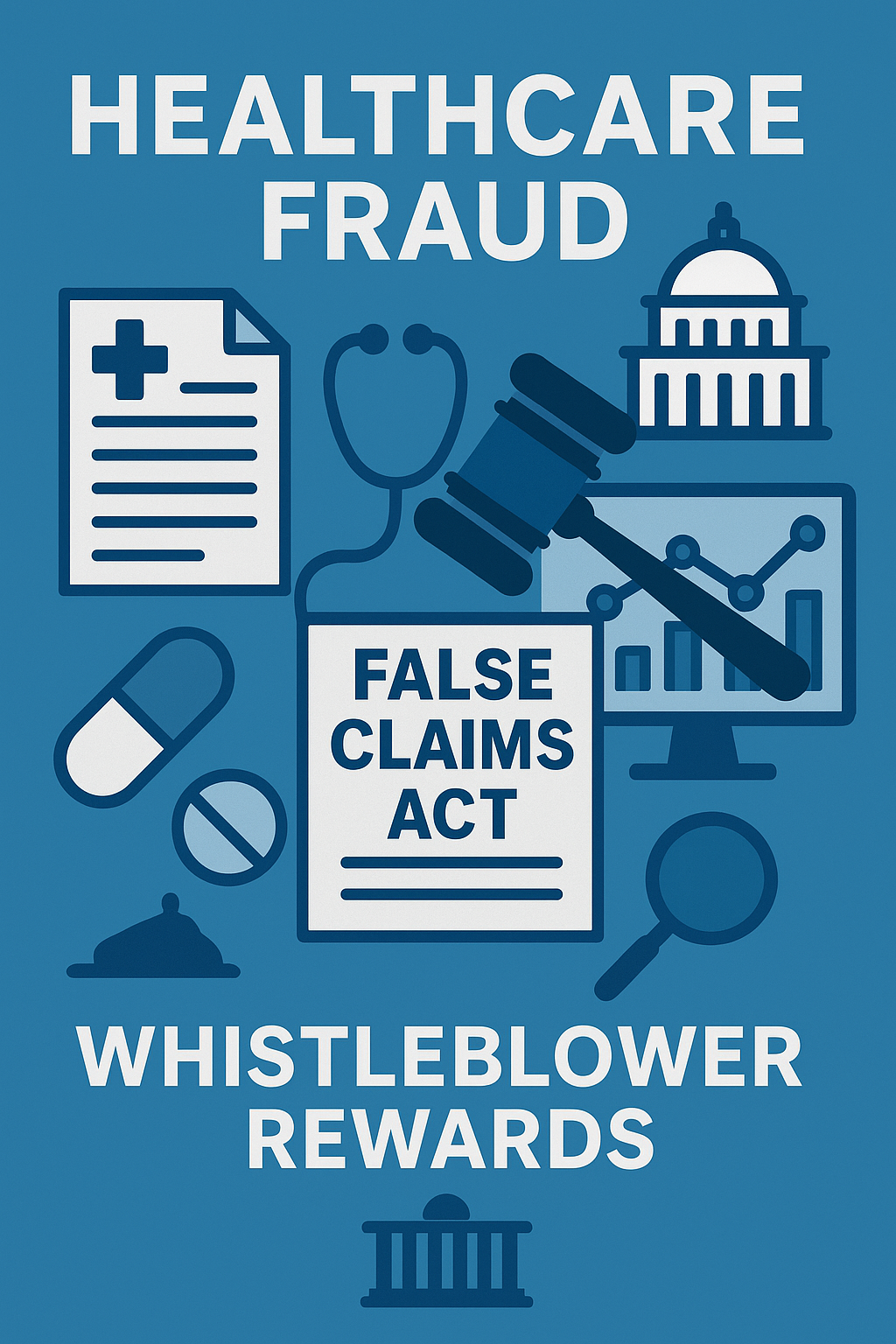On July 2, 2025, the U.S. Department of Justice (DOJ) and the Department of Health and Human Services (HHS) relaunched the False Claims Act (FCA) Working Group, an interagency initiative designed to combat healthcare fraud. This demonstrates the federal government’s commitment to identifying and prosecuting FCA violations by enhancing collaboration and increasing scrutiny of Medicare and Medicaid-funded entities.
While corporate defense firms advise their clients to prepare for heightened oversight, whistleblowers should view this announcement as a clear opportunity. The government has reaffirmed that insider reports are essential to uncovering fraud and advancing enforcement priorities.
Top Priority Areas for FCA Whistleblower Cases
The DOJ-HHS FCA Working Group has identified six high-priority enforcement areas—each closely tied to whistleblower-driven healthcare fraud enforcement:
-
Medicare Advantage (MA) Fraud
The government continues to target improper risk adjustment coding and unsupported diagnoses in Medicare Advantage plans. -
Pharmaceutical and Medical Device Pricing Schemes
The Working Group focuses on improper rebates, hidden fees, and fraudulent price reporting as key enforcement areas. -
Barriers to Patient Care and Network Adequacy Violations
DOJ and HHS explicitly include inadequate healthcare provider networks and restricted patient access as FCA enforcement priorities. Whistleblowers who observe efforts to deny or delay access to care should report these practices. -
Illegal Kickbacks and Financial Arrangements
DOJ and HHS remain focused on financial schemes that improperly influence the prescribing or purchasing of federally reimbursed drugs, devices, or services. This includes improperly steering patients to specific MA plans by using kickbacks. -
Unsafe or Defective Medical Devices
Entities that bill for or market devices they know to be unsafe or defective may face FCA liability. Employees who know about safety issues or quality control failures can provide crucial evidence. -
Electronic Health Record (EHR) Manipulation
The misuse of EHR systems to inflate utilization or conceal inaccurate documentation has come under increased scrutiny. IT professionals and vendor insiders have unique opportunities to expose fraudulent EHR practices.
Record-Breaking $2.9 Billion Takedown Reinforces Government’s FCA Focus
Just days before the Working Group relaunch, DOJ announced the largest coordinated healthcare fraud enforcement operation in U.S. history. On June 30, 2025, the agency revealed that it had filed criminal charges against 324 individuals across 50 federal districts and 12 state attorney general offices. The schemes involved over $14.6 billion in intended losses, with more than $2.9 billion in actual fraud losses.
The scope of the takedown highlights just how pervasive—and varied—healthcare fraud can be. Charged conduct included:
-
$12 billion in fraudulent claims tied to transnational criminal organizations, including a $650 million scheme that exploited Arizona’s Medicaid program and targeted Native American patients through fake addiction clinics.
-
$1.1 billion in wound care fraud, involving medically unnecessary amniotic grafts applied to hospice patients.
-
$1.17 billion in fraudulent telemedicine and genetic testing claims, many driven by deceptive telemarketing and fake physician orders.
-
$1.84 billion in broader schemes, including diagnostic testing, medical visits, and services that were either never rendered, medically unnecessary, or tainted by kickbacks.
CMS, for its part, reported preventing $4 billion in false claims and revoked the billing privileges of over 200 providers.
An Important Moment for Whistleblowers
The renewed attention from DOJ and HHS makes one thing clear: whistleblowers remain essential to fraud enforcement. Even as federal agencies build sophisticated analytics capabilities, insider reports provide context and intent that no algorithm can match. Individuals with timely, credible information have an opportunity to protect patients, preserve public resources, and potentially receive substantial financial rewards under the FCA.
If you have information about healthcare fraud, contact us for a free and confidential consultation. We’re here to help.

